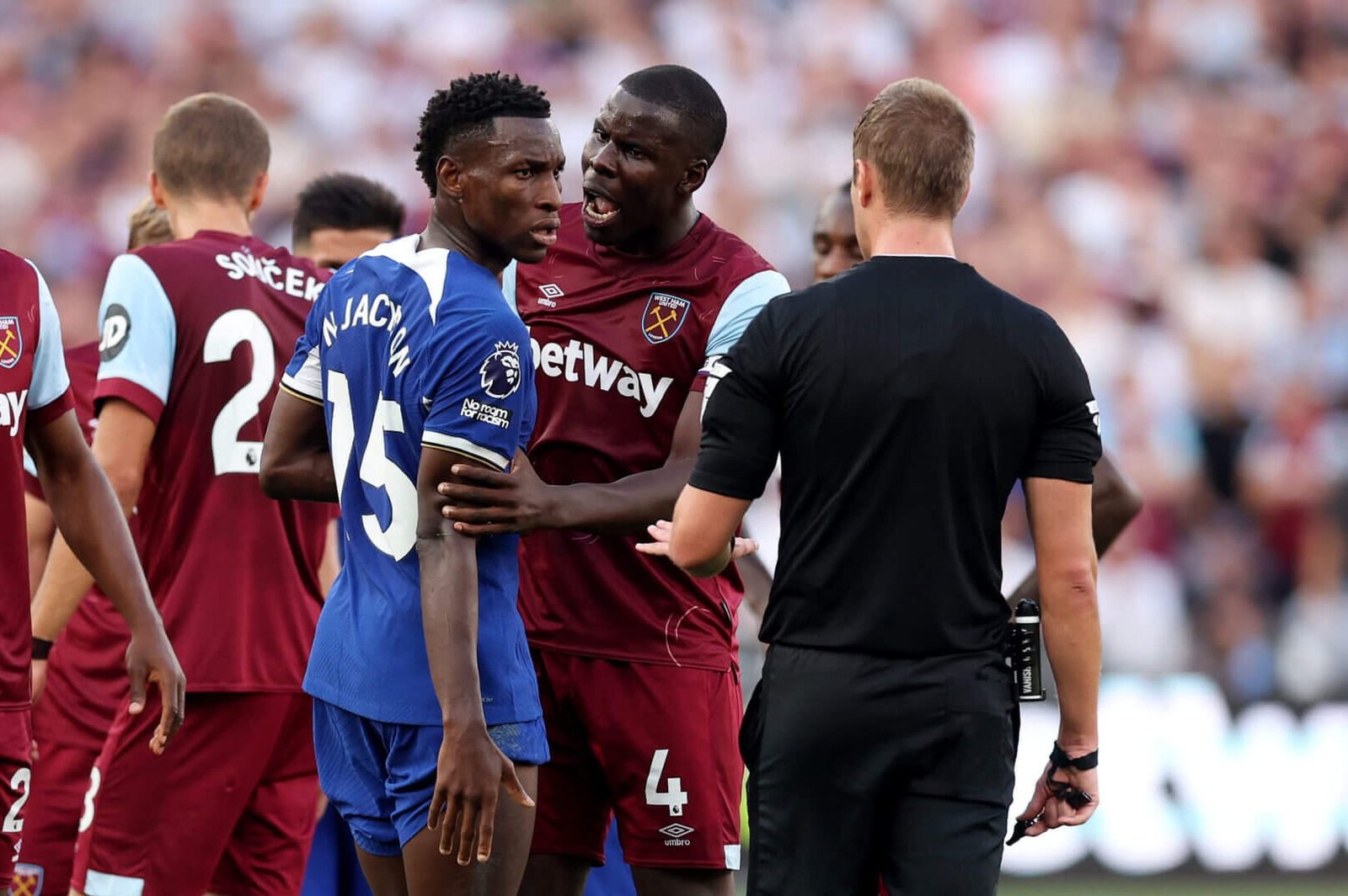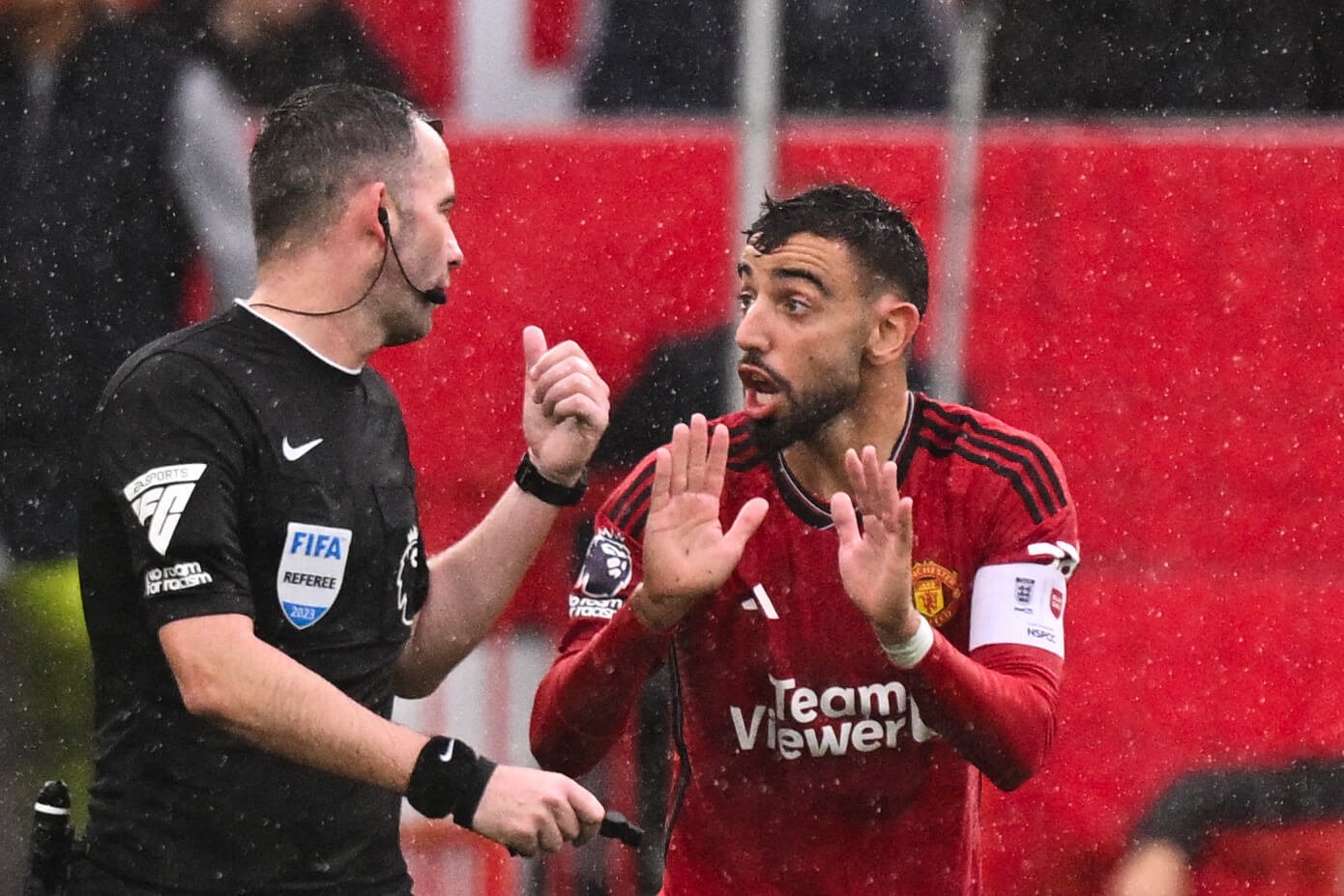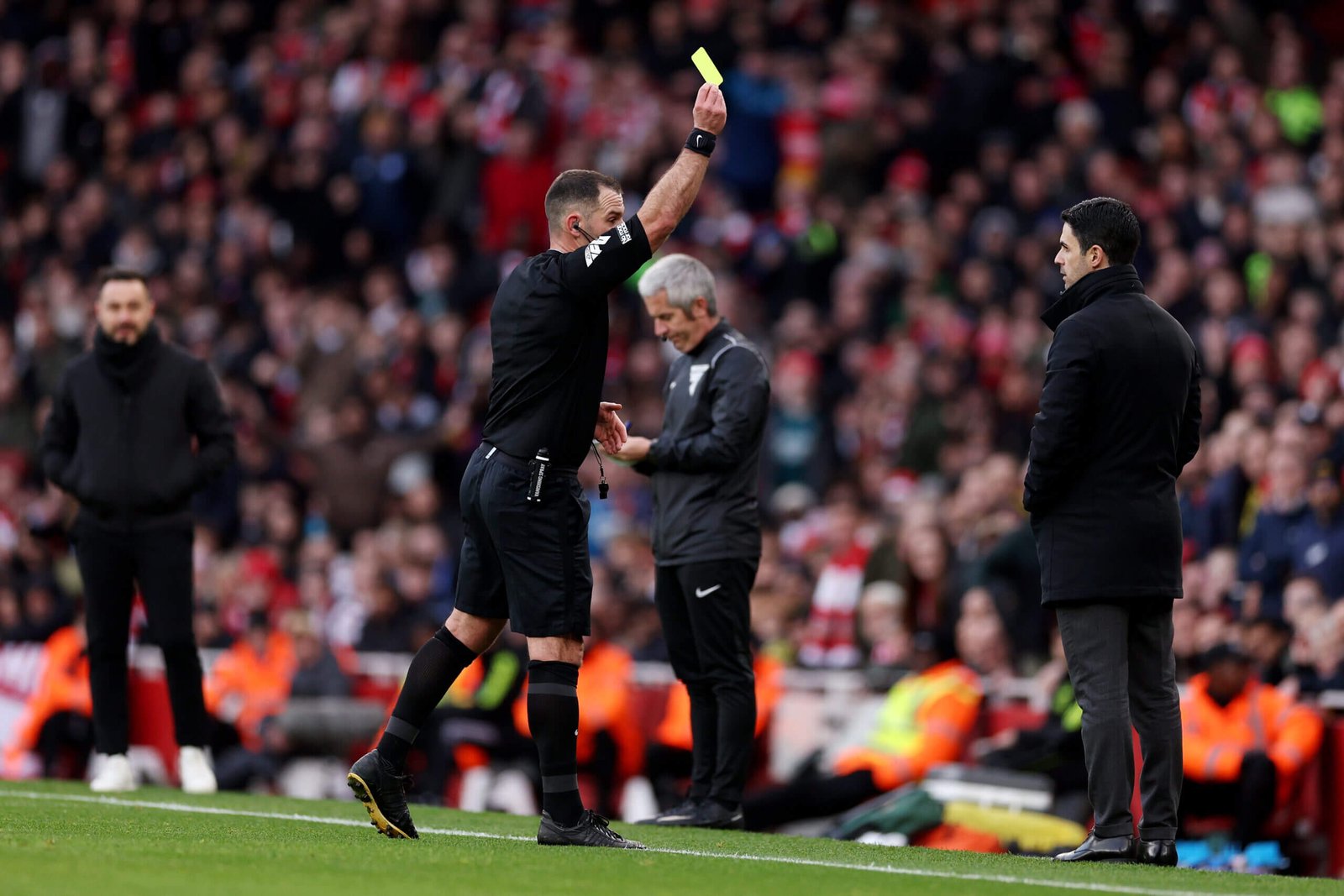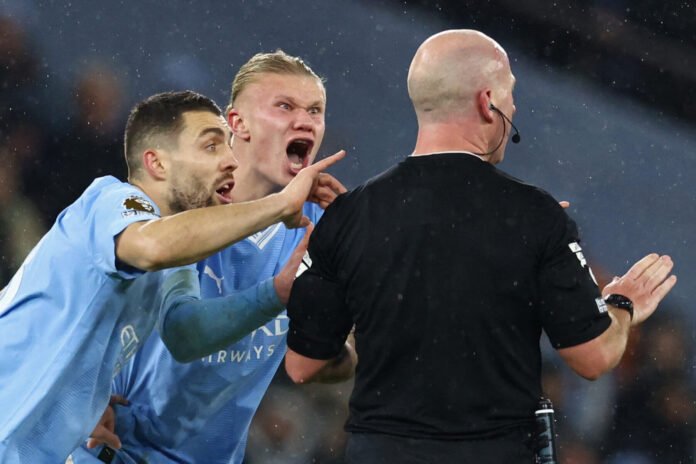It’s an issue that’s been brought sharply into focus with talk around blue cards and sin-bin trials in football.
Dissent, chatting back to a match official, is a part of the game that football authorities want to get tough on.
Stricter rules on dissent, introduced last summer, have seen a rise in yellow cards this season as referees were told to clamp down on unacceptable backchat. With this being the case, which team are the Premier League’s worst offenders? And which individual players are on the naughty step at your club?
The Athletic takes a closer look.
The crackdown on dissent this season has led to a big jump in the number of players receiving yellow cards in the top flight.
There have already been 155 yellow cards brandished for dissent this season, compared to 86 for the whole of last season, 72 in 2021-22, 56 in 2020-21 and 75 in the 2019-20 campaign.
Chelsea, floating around mid-table and yet to convince under Mauricio Pochettino, are the league’s chief culprits with 15 yellows for dissent, followed by Fulham with 14 and Manchester United with 13.
Tottenham Hotspur and Wolverhampton Wanderers have 10 each while Liverpool, West Ham United, Bournemouth, Newcastle United and Brighton & Hove Albion are on nine. At the other end of the table, Luton Town, Manchester City, Brentford and Burnley have shown the greatest discipline, with just three bookings each for dissent.
Yellow cards for dissent in 2023-24 PL
One player from each of the league’s worst culprits — Nicolas Jackson, Andreas Pereira and Bruno Fernandes — has picked up the most individual yellow cards for dissent this campaign, with four each.
Pochettino has already spoken with Jackson, who joined from Villarreal last summer for £31million ($39m), on the need to address this part of this game.
In September, before their match against Aston Villa, Chelsea’s manager said: “I talked to him about that. I said, ‘Come on, you need to get some yellow cards for different actions, not because of that’. It’s so easy, so cheap. He could put the team in a really difficult situation.

Nicolas Jackson (left) has been punished for dissent four times (Julian Finney/Getty Images)
“He understood. Maybe it’s his normal behaviour on the pitch but it’s something he has to improve. This season they changed the rules. He came from Spain where it’s different, the relationship with the referees. Here in England, it is more sensitive about this. He needs to be clever, not to protest to the referees.”
Jackson has picked up nine yellow cards in total this campaign, including one at Selhurst Park on Monday night where he managed to get booked even after being subbed off. This happened when he sprinted across the pitch from the substitutes’ bench to join in the celebrations for Chelsea’s third goal. Axel Disasi was also booked for leaping into the away end after his team’s second.
On Christmas Eve, during their match away at Wolves, Jackson, along with Cole Palmer and Malo Gusto, were booked for dissent in the space of six minutes after going 1-0 down, a chain of events that highlighted Chelsea’s inexperience. “Of course it’s frustrating,” Pochettino said after the game. “But the players care, the players want to win. It’s not about a lack of discipline. It’s about having the ability to read the situation of the game.”

Bruno Fernandes has been shown four yellow cards for dissent (Oli Scarff/AFP via Getty Images)
Another player whose actions have come in for criticism has been Fernandes, the Manchester United captain. He missed United’s game against Liverpool through suspension after he was given a late yellow for dissent at the end of their 3-0 home defeat to Bournemouth on December 9. Following that, former Scotland international Craig Burley wrote on X, formerly known as Twitter: “Booked for dissent and constant whining. Bruno Fernandes is a disgrace.”
The Portugal international was also booked for dissent at the end of United’s 3-0 home loss to Manchester City on October 29, a game where he let his emotions get the better of him. Speaking after, Roy Keane said he would strip him of the captaincy, adding: “Fernandes is a brilliant footballer but he is the opposite of what I would want in a captain.”
In 2022, Fernandes told The Athletic that pestering referees was something he considered essential to him performing at his highest level.
An uptick in yellow cards for dissent comes after match officials were told to get tougher this campaign.
At the end of November, Brighton defender Lewis Dunk was handed a straight red card for abusing referee Anthony Taylor during his team’s 3-2 win over Nottingham Forest. This was the first time a player had been sent off for abusive language since Alan Smith for Newcastle United against Manchester United in January 2008.
The following month, Manchester United’s Diogo Dalot received two yellow cards in the space of 15 seconds after protesting referee Michael Oliver’s call to award Liverpool a throw-in during the two team’s 0-0 draw at Anfield.
Liverpool’s Darwin Nunez, Gabriel Jesus at Arsenal, Lucas Paqueta at West Ham and Chelsea’s Enzo Fernandez have all picked up three yellow cards each for dissent this season.
In December, Howard Webb, chief refereeing officer at Professional Game Match Officials Limited (PGMOL), said the referees’ body had been “empowered and supported” to create a “culture change” within the game. “It is early days, but we are moving in the right direction,” Webb added.
Webb said the changes had resulted in fewer players crowding around a referee when a decision went against them. Manchester City were fined £120,000 for that when their players, most notably an incandescent Erling Haaland, surrounded referee Simon Hooper after he failed to play an advantage in the closing stages of their 3-3 draw with Tottenham in December.
When it comes to managers and yellow cards (not just relating to dissent), Arsenal’s Mikel Arteta has received the most (four), followed by Pep Guardiola, Marco Silva, Erik ten Hag, Pochettino, Roberto De Zerbi and Sean Dyche with three each. David Moyes, Roy Hodgson, Unai Emery and Nuno Espirito Santo have all only been booked once.

Arteta, right, has been yellow-carded four times this season (Richard Heathcote/Getty Images)
This all comes in the week after a trial for blue cards and sin bins in professional football was delayed when FIFA objected.
The idea was for blue cards to be used for players who abused match officials or made cynical fouls. Their use had been due to be announced by the International Football Association Board last Friday but that has now been pushed back until after its annual meeting at Loch Lomond in Scotland on March 2.
In a statement, FIFA said: “Reports of the so-called blue card at elite levels of football are incorrect and premature. Any such trials, if implemented, should be limited to testing in a responsible manner at lower levels.”
Sin bins for dissent are already in place across amateur and youth football in England and Wales, albeit referees use yellow — rather than blue — cards to punish infringements.
After the idea was floated, managers including Ange Postecoglou, Jurgen Klopp and Eddie Howe spoke out against it.
Other items on that agenda at Loch Lomond include trials of ‘cooling-off periods’ after square-ups between players, punishing time-wasting goalkeepers by awarding a corner and only allowing a team’s captain to approach the referee.
(Top photo: Darren Staples/AFP via Getty Images)
Read the full article here


